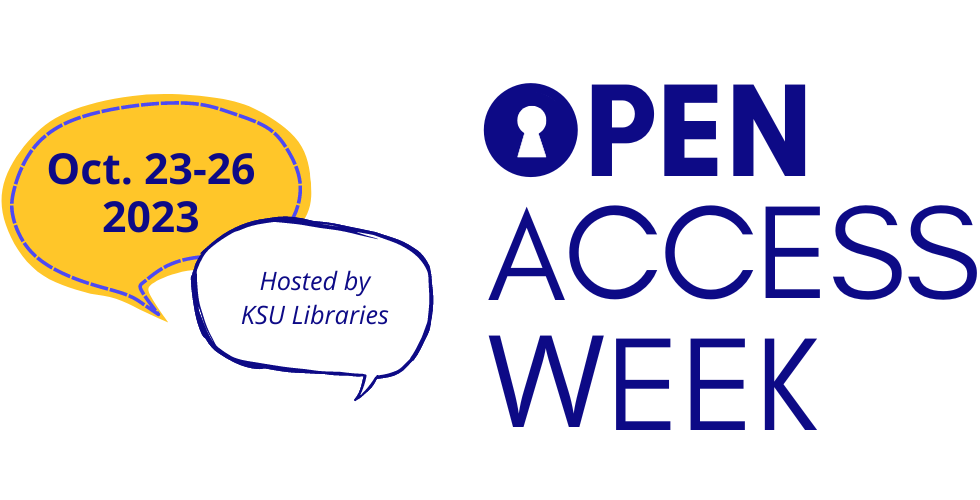
Loading...
Presentation Type
Q+A Panel
Location
Zoom.
Start Date
25-10-2023 4:00 PM
End Date
25-10-2023 4:45 PM
Description
Kennesaw State University is the second largest institution in Georgia, with an incoming freshman enrollment for first-year writing courses of 8,676. Given the need to provide these students, more than 38% of whom identify as first-generation, with high-quality, no-cost general education courses, Jeanne and Tammy garnered four Affordable Learning Georgia grants. With the support of these grants, Jeanne, Tammy, and Brayden worked with teams of subject matter experts and helped build a series of no-cost course templates that aligned to standardized first-year composition program learning outcomes and assignment types.
At this point in the project, the courses have been built and piloted. We are now comparing student experiences in these courses versus non-OER courses through surveys, faculty feedback, and DFWI rates. The overall purpose of these projects has been to help faculty dive in to teaching with OERs. The presenters would like to talk about the building process and the research we have conducted on the student learning outcomes. In addition, as of fall semester 2023 we have integrated AI into specific iterations of these first-year writing courses, including low-stakes invention assignments and one major end-of-semester assignment. We are surveying and interviewing students in these courses to gauge their attitudes towards AI and its use in college writing.
Questions:
- What OERs do you find particularly successful in improving composition course outcomes?
- Have there been any challenges to OER adoption in this context?
- Does using OERs impact student engagement and motivation within composition courses?
- Have you found that OERs have facilitated collaboration among educators across different institutions? What have you found to be best practices for fostering collaboration in the development and sharing of these resources?
- As students are introduced to using AI for writing assistance, how do you address concerns about overreliance on technology and potential issues related to plagiarism or loss of originality in their work?
- As you integrate AI tools into writing assignments, can you share how AI has been effectively used to support students’ writing processes? What benefits and pitfalls have you observed when incorporating AI into composition courses?
Creative Commons License

This work is licensed under a Creative Commons Attribution 4.0 International License.
Not Just an OER But an Entire Course!
Zoom.
Kennesaw State University is the second largest institution in Georgia, with an incoming freshman enrollment for first-year writing courses of 8,676. Given the need to provide these students, more than 38% of whom identify as first-generation, with high-quality, no-cost general education courses, Jeanne and Tammy garnered four Affordable Learning Georgia grants. With the support of these grants, Jeanne, Tammy, and Brayden worked with teams of subject matter experts and helped build a series of no-cost course templates that aligned to standardized first-year composition program learning outcomes and assignment types.
At this point in the project, the courses have been built and piloted. We are now comparing student experiences in these courses versus non-OER courses through surveys, faculty feedback, and DFWI rates. The overall purpose of these projects has been to help faculty dive in to teaching with OERs. The presenters would like to talk about the building process and the research we have conducted on the student learning outcomes. In addition, as of fall semester 2023 we have integrated AI into specific iterations of these first-year writing courses, including low-stakes invention assignments and one major end-of-semester assignment. We are surveying and interviewing students in these courses to gauge their attitudes towards AI and its use in college writing.
Questions:
- What OERs do you find particularly successful in improving composition course outcomes?
- Have there been any challenges to OER adoption in this context?
- Does using OERs impact student engagement and motivation within composition courses?
- Have you found that OERs have facilitated collaboration among educators across different institutions? What have you found to be best practices for fostering collaboration in the development and sharing of these resources?
- As students are introduced to using AI for writing assistance, how do you address concerns about overreliance on technology and potential issues related to plagiarism or loss of originality in their work?
- As you integrate AI tools into writing assignments, can you share how AI has been effectively used to support students’ writing processes? What benefits and pitfalls have you observed when incorporating AI into composition courses?


Comments
We have created four OER courses to jumpstart course adoption. Here is one:
ENGL 1101 , 50% Hybrid